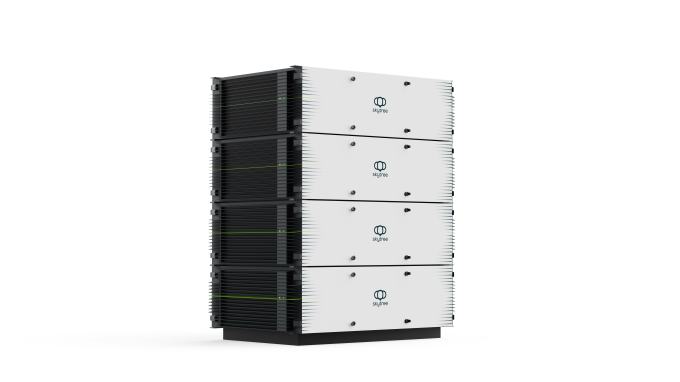Sucking carbon dioxide out of the air isn’t rocket science — the technology is decades old — but one startup thinks that maybe a little rocket science could help make direct air capture better.
Carbon dioxide scrubbers have been around since the 1800s, when commercial divers used them to extend their oxygen supply underwater. The technology got another boost when humans launched themselves into space. But it wasn’t until the specter of unchecked climate change that people began to consider its terrestrial applications.
A number of startups are racing to commercialize direct air capture of CO2, and most of them are chasing what you might call an open air market: drawing carbon straight from the atmosphere. Many use technology that draws on the same principles used in diving rebreathers and spacecraft life support, but Skytree is among the few that can claim a direct inheritance. The company was spun out of the European Space Agency in 2014 after its core technology saw service on the International Space Station.
On Tuesday, the company is announcing a $6 million seed round led by Horticoop and Yield Lab Europe, TechCrunch+ has exclusively learned.
Working in confined quarters seems to have shaped the company from its very founding. Its initial product was aimed at electric vehicles, of all things. Though the cars don’t produce any emissions, their occupants do, and carbon dioxide levels can build quickly in an unventilated cabin. But as anyone who has driven an EV can tell you, heating or cooling outside air can quickly sap battery’s range. Skytree figured that its scrubbers could remove carbon dioxide from the cabin, reducing the need to condition outside air.
Work on that product trundled along for a few years, but the automotive sector is a challenging market where volumes are high and margins are thin. Aware of this, the company began exploring other options. A new incoming CEO, Rob Van Straten, cemented the decision.
“Volkswagen will not sign with you with an eight-person or 20-person company — it will just not happen,” Van Straten told TechCrunch+. “And if that miracle does happen, they will squeeze you to the bone and you can’t build a profitable company. It’s a dead-end street.”
Van Straten instead directed the company to develop its other product, which was also tailored to confined spaces: greenhouses.
Because they’re enclosed, greenhouses can fortify their indoor atmosphere with carbon dioxide, giving their crops a boost. But it’s not as simple as hooking up a tank of CO2 and opening the valve. Plants, like animals, also produce carbon dioxide when they respire. During the day, photosynthesis absorbs that CO2 and then some. At night, when photosynthesis isn’t running, plants produce carbon dioxide. During the day, though, that excess CO2 is quickly depleted, requiring operators to bring in more. They can use outdoor air, but that has to be conditioned, like in a car.
Normally, greenhouse operators have to find a supply of carbon dioxide to balance things out during the day. Skytree’s modular boxes, though, can scrub carbon dioxide at night and store it to be released during the day, when plants can make use of it.
The startup’s technology is relatively ordinary, using typical sorbents that absorb carbon dioxide and release it when heated. Van Straten said that the company has optimized it for efficiency, bringing down electricity requirements. In 70% to 80% of the cases Skytree has investigated, the company’s CO2 scrubbers are cheaper than if greenhouses were to buy the gas from a fossil fuel source.

And in a clever show of product-market fit, Skytree’s boxes can also plug into a greenhouse’s geothermal heating system to reduce energy use even more. “Half of Dutch greenhouses are either connected to geothermal or are in process of being connected,” Van Straten said.
That will help the company hit its carbon removal targets, currently pegged at 10 million metric tons of CO2 by 2030. As it scales its technology, it’ll begin exploring the open-air carbon markets, deploying its modular scrubbers in 48- to 96-unit clusters centered around renewable energy developments.
In the meantime, the company is focused on the greenhouse market, where Van Straten said it has MOUs and verbal agreements for its first 300 units. The seed round will be enough to get its first products to market and begin drawing revenue, which will come from equipment sales and maintenance contracts.
“Our current thinking is that we probably don’t need more cash because we can finance the supply chain,” Van Straten said. “It’s less risky — there are other non-equity financial instruments. But if we would go back to the capital market, then we’re in a completely different risk profile.”
The words “less risky” are not typically mentioned in conversations about direct air capture, but then most DAC companies aren’t targeting established industries with clear demand for their products. By diving into a niche market, Skytree might show a path to profitability for DAC companies. That could give Skytree the time it needs to bring the technology’s cost down to the point where it makes sense to unleash it on the atmosphere. After all, no one’s going to solve the climate problem from day one.





























Comment